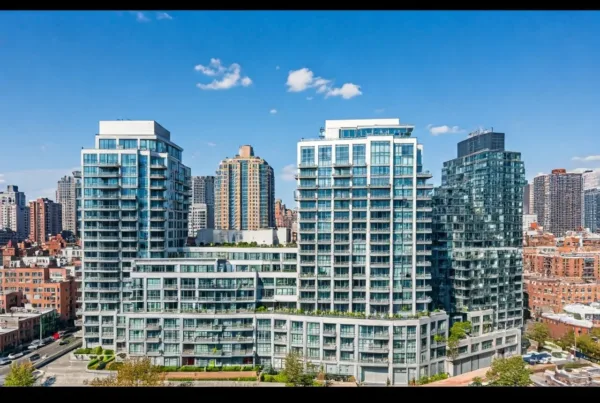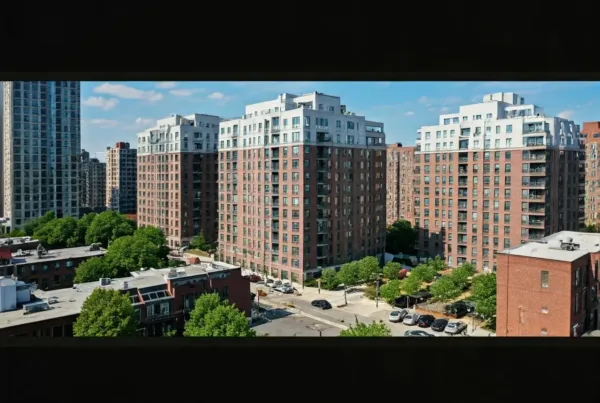Discover the secret world of sponsor units in real estate: the hidden gems and potential pitfalls that come with them.
Table of Contents
Introduction to Sponsor Units
In the world of real estate, you may have heard about sponsor units. But what exactly are sponsor units, and why do they matter when it comes to buying a home or apartment? Let’s explore the intriguing concept of sponsor units and uncover their significance in the real estate market.
What is a Sponsor Unit?
Imagine you have a favorite store where you always buy your toys. One day, the store decides to sell a toy directly to you before putting it on the shelves for everyone else to buy. That toy is like a sponsor unit in real estate. A sponsor unit is a home or apartment that a developer or sponsor sells directly to a buyer before it becomes available to the general public.
Why Are They Important?
People may choose to buy sponsor units for various reasons. Since sponsor units are sold directly by the developer, they can sometimes offer unique advantages. For example, sponsor units might be priced differently than other units for sale, making them more affordable for buyers. Additionally, sponsor units can provide an opportunity to purchase a property without having to go through a competitive bidding process, giving buyers a chance to secure their dream home more easily.
Advantages of Buying a Sponsor Unit
When it comes to purchasing a new home, there are many options to consider. One of these options is buying a sponsor unit, which comes with its own set of benefits. Let’s explore some of the advantages of choosing a sponsor unit for your next real estate investment.
Lower Closing Costs
One of the main advantages of buying a sponsor unit is the potential for lower closing costs. Since sponsor units are often sold directly by the developer or owner, buyers may be able to avoid certain fees associated with traditional real estate transactions. This means you could save money upfront and use those savings for other expenses related to your new home.
Less Competition
Another benefit of purchasing a sponsor unit is the potential for less competition. Because sponsor units may not be as widely advertised or marketed as other properties, there may be fewer buyers interested in these units. This can work in your favor by giving you a better chance of securing the unit you want without facing a bidding war.
No Board Approval
When you buy a sponsor unit, you typically do not need to go through the process of board approval. Board approval is a common requirement for co-op buildings, where a cooperative board reviews and approves potential buyers. By bypassing this step, you can streamline the buying process and move into your new home more quickly and easily.
Drawbacks of Buying a Sponsor Unit
One drawback of buying a sponsor unit is that they can sometimes come with higher price tags. Since sponsor units are often brand new or recently renovated, they may be priced at a premium compared to other units in the same area. This higher upfront cost could be a barrier for some potential buyers looking for a more affordable option.
Possible Property Issues
Another downside of sponsor units is the possibility of property issues. Because sponsor units are typically sold by developers or original owners, there may be maintenance or repair needs that need to be addressed. This could lead to unexpected costs and headaches for the new owner, making it a less appealing option for some buyers.
Limited Customization
When buying a sponsor unit, there is often limited customization options available to the buyer. Unlike purchasing a resale unit where you can personalize the space to your liking, sponsor units may come as-is with limited room for changes. This lack of customization could be a drawback for buyers who are looking to make their new home truly their own.
Comparing Sponsor Units with Regular Units
When looking to buy a new home, you might come across different types of units, including sponsor units and regular units. Let’s take a closer look at the key differences between these two options to help you decide which one suits your needs best.
What’s the Difference?
A sponsor unit is typically owned by the developer of a building or a sponsor, who is looking to sell it. These units are often brand new and may come with special perks or incentives to attract buyers. On the other hand, regular units are owned by individuals who are looking to sell their homes, which might have been lived in before and may require some updates or repairs.
One significant difference between sponsor units and regular units is the level of customization allowed. With a sponsor unit, buyers may have more flexibility to make changes or upgrades to the unit since it’s usually a new construction. In contrast, regular units may have limitations on what modifications can be made.
Which One Fits You?
Deciding between a sponsor unit and a regular unit depends on your preferences and priorities. If you value the ability to customize your living space and enjoy the perks that come with a new home, a sponsor unit might be the right choice for you. However, if you prefer a home with character and history, a regular unit could be a better fit.
Consider factors such as your budget, timeline, and willingness to put in work for renovations when choosing between sponsor units and regular units. Ultimately, the decision should align with your lifestyle and long-term goals for homeownership.
Making the Decision: Buying a Sponsor Unit
When deciding whether to buy a sponsor unit, there are a few key factors to keep in mind. Firstly, consider your budget. Sponsor units may come with a higher price tag than regular units, so make sure you can afford the upfront cost. Next, think about your long-term goals. Are you looking for a property to live in for many years, or are you considering it as an investment? Understanding your goals will help you make the right decision.
| Pros | Cons |
|---|---|
| Discounted Price | Potential conflict of interest |
| Possibility of customization | Uncertain future rental restrictions |
| Opportunity for early access to new developments | Limited negotiation power |
Asking the Right Questions
As you explore sponsor units, it’s important to ask the right questions to ensure you make an informed decision. Ask about any potential maintenance or repair issues the unit might have. Inquire about the building’s amenities and any restrictions that may come with owning a sponsor unit. It’s also a good idea to find out about the history of the unit and any renovations that have been done. By asking these questions, you can gain a better understanding of the property and determine if it’s the right fit for you.
Summary
In this article, we talked about sponsor units in real estate. We learned that sponsor units are special units for sale and they play a significant role in the real estate market. Let’s quickly recap the main points we discussed.
What is a Sponsor Unit?
A sponsor unit is like getting a special deal on a house or apartment that’s up for sale. It’s like buying a unique version of a product that not everyone can get. The sponsor is the special person or company offering this deal.
Why Are They Important?
People buy sponsor units because they can sometimes be cheaper to purchase. They can also skip the process of board approval, which can make buying a home quicker and easier.
Advantages of Buying a Sponsor Unit
We discussed how buying a sponsor unit can result in lower closing costs, less competition, and no need for board approval.
Drawbacks of Buying a Sponsor Unit
On the flip side, sponsor units can sometimes have higher price tags, possible property issues, and limited customization options.
Comparing Sponsor Units with Regular Units
We compared sponsor units with regular units, highlighting the differences and helping readers decide which type might be better for them.
Making the Decision: Buying a Sponsor Unit
We offered tips on things to consider and questions to ask when deciding on buying a sponsor unit, to help make the decision easier for readers.
Frequently Asked Questions (FAQs)
What Does ‘Sponsor Unit’ Mean?
A sponsor unit is a special type of real estate unit that is owned by the developer or sponsor of a building. It is typically one of the first units to be sold when a new building is constructed. The sponsor may sell the unit to an individual buyer or retain ownership and rent it out themselves.
Are Sponsor Units Good Investments?
Whether a sponsor unit is a good investment depends on various factors, such as the location of the unit, market conditions, and the specific terms of the purchase. In some cases, buying a sponsor unit can be a smart choice because it may come with lower closing costs and less competition. However, it’s essential to research and consider all aspects before making a decision.
Can I Customize My Sponsor Unit?
Begin your search and start earning cash back!
While it is possible to customize a sponsor unit to some extent, there may be limitations compared to units that are not sponsor-owned. Since the sponsor maintains ownership of the unit, there may be restrictions on the changes a buyer can make. It’s important to clarify any customization possibilities with the sponsor before purchasing the unit.







